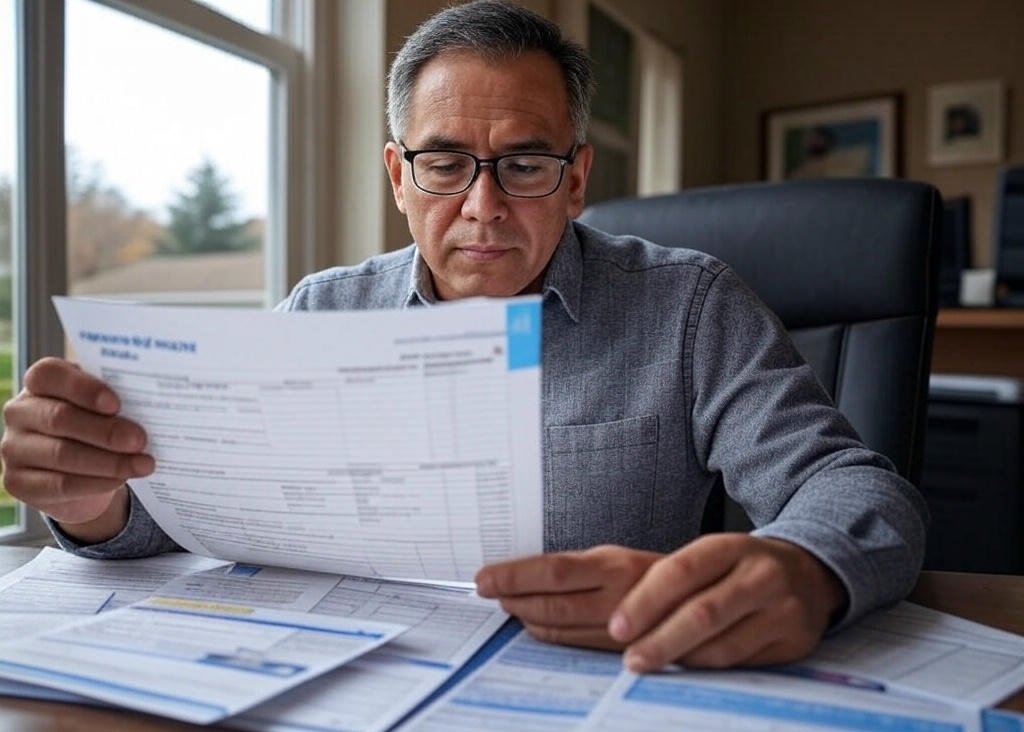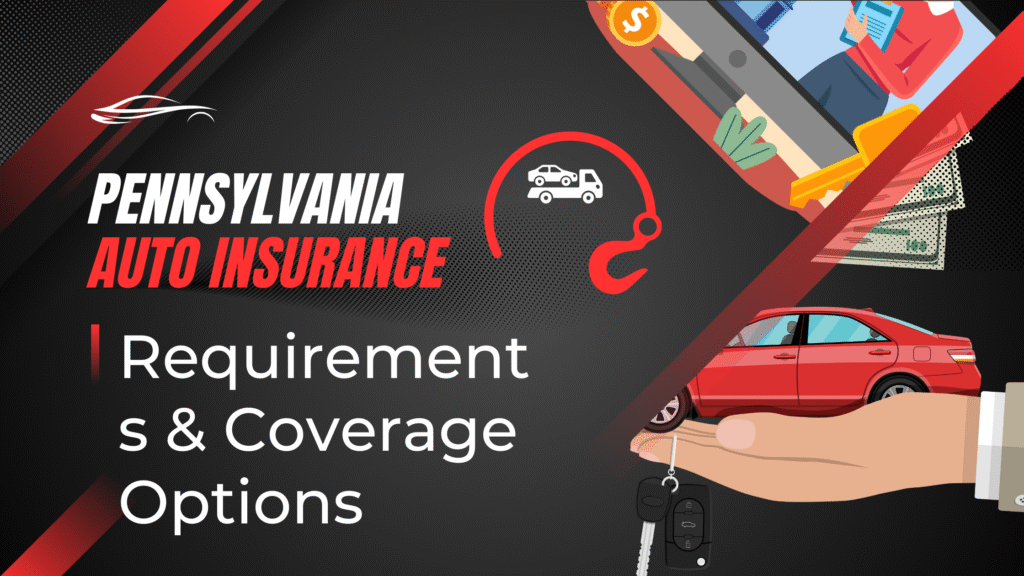If you’ve ever scratched your head trying to figure out what kind of car insurance you actually need in Pennsylvania, you’re not alone. Between mandatory coverages, optional add-ons, and all those terms like “liability” and “personal injury protection,” it can all get a bit overwhelming. But don’t stress, we’re breaking it down for you in plain English.
Whether you’re a new driver in Pennsylvania or have been hitting the road for years, understanding how auto insurance works in your state is key to staying safe and legal behind the wheel.
FAQs About Pennsylvania Auto Insurance
Here are some questions and their short answers that we found are frequently asked by our readers.
Disclaimer: We are not a financial adviser; please consult one.
It’s not a good look for your record or your wallet. Even a short lapse in coverage can lead to penalties, higher rates once you get insured again, and possibly even having to pay for damages out-of-pocket if you’re in an accident.
Sort of. Pennsylvania is known as a “choice no-fault” state because drivers can sue for court damages depending on the tort option they selected in their policy. The required $5,000 Personal Injury Protection (PIP) covers your medical bills up to that limit, no matter who caused the accident.
Nope. Driving without insurance is not only illegal, but it may result in fines, license suspension, and even having your vehicle registration revoked. Bottom line: don’t risk it.
Pennsylvania requires 15/30/5 liability coverage ($15,000 per person/$30,000 per accident bodily injury, $5,000 property damage) and $5,000 medical payments coverage for no-fault benefits.
Rates are rising due to higher accident rates, increased repair and medical costs, and inflation. Full coverage averages $2,447/year, minimum coverage $520/year.
Auto-Owners ($9/month minimum, $51/month full), Travelers ($895/year), and State Farm ($1,202/year full) are among the cheapest.
Shop around, bundle home and auto, raise deductibles, use telematics, maintain good credit, and apply discounts like safe driver or defensive driving.
A DUI increases rates by 102%, adding about $2,492/year to full coverage. Speeding tickets raise rates by 13%.
Let’s Talk About What’s Required in Pennsylvania

Like most states, Pennsylvania requires drivers to carry a minimum amount of auto insurance. The idea is to make sure everyone on the road has at least basic coverage to protect themselves and others in case of an accident.
Here’s what you’re legally required to carry in Pennsylvania:
- Bodily Injury Liability: You need coverage of at least $15,000 per person and $30,000 per accident for injuries caused to others in an accident you’re responsible for.
- Property Damage Liability: A minimum of $5,000 to cover damage to others’ vehicles or property.
- Medical Benefits (No-Fault Coverage): At least $5,000 to pay for medical expenses for you and passengers, regardless of who caused the accident.
If you’ve noticed that Pennsylvania’s property damage requirement is lower than many other states, you’re not wrong. While meeting the minimums is a legal necessity, you might want to consider higher coverage to avoid paying out-of-pocket costs after a serious accident.
Full Tort vs. Limited Tort – What’s That All About?
Here’s a unique feature of Pennsylvania car insurance that often leaves people scratching their heads: the tort option. When buying a policy, you must choose between Full Tort and Limited Tort coverage.
- Full Tort: You retain full legal rights to sue for pain and suffering after an accident, even if the injuries are relatively minor.
- Limited Tort: You can save on your premium, but you limit your ability to sue unless the injuries are considered “serious.”

If you’re not sure which one to pick, think about this: choosing Limited Tort might save you a few bucks up front, but it could cost you big time if you end up hurt in a crash. Full Tort costs more, but it gives you better legal protection. It’s like choosing between buying a cheap safety helmet versus a high-quality one; you hope you never need it, but you’ll want the best protection if you do.
Optional Car Insurance Coverage in Pennsylvania
While the state only requires the coverage we listed above, accidents can be expensive. That’s why so many drivers in Pennsylvania go beyond the basics. Here are some additional options that can offer peace of mind:
- Collision: Covers repairs to your own car if it’s damaged in an accident, whether it’s your fault or not.
- Comprehensive: Handles non-accident damage like theft, vandalism, fire, and hitting a deer (which happens more often than you’d think in PA!).
- Uninsured/Underinsured Motorist: Protects you if someone hits you and they don’t have enough (or any) insurance coverage.
- Income Loss Coverage: Helps cover lost wages if you’re unable to work after an accident.
- Funeral Benefit: Provides a small payout toward funeral costs if someone dies as a result of a car accident.
Think of these options as customizing your coverage, kind of like adding toppings to your pizza. The basics will get the job done, but the extras make it a whole lot better.
How to Save on Auto Insurance in Pennsylvania
Car insurance isn’t exactly cheap, but don’t worry, you’ve got options when it comes to saving. Here are some handy tips to lower your premiums while still getting great coverage:
- Compare Quotes: Shopping around from multiple insurers can lead to big savings. Each company has its own pricing model.
- Bundle Your Policies: Got renters’ or homeowners insurance? Bundling it with your auto policy can qualify you for a discount.
- Maintain a Clean Driving Record: The better your record, the lower your rates.
- Consider a Higher Deductible: Choosing a higher deductible can reduce your premium, but make sure you can afford to pay it out of pocket if something happens.
- Ask About Discounts: Safe driver? Good student? Military or senior citizen? Insurers often offer discounts based on your lifestyle, age, or career.
One time, a friend of mine knocked $30 a month off their bill just by signing up for a telematics program that tracked safe driving habits through an app. That’s over $350 a year in savings just for driving like a grown-up!
Final Thoughts: Is Your Coverage Enough?
Let’s face it: insurance isn’t the most exciting thing to think about. But having the right auto insurance in place can make a huge difference when life throws you a curveball. In a state like Pennsylvania, where insurance rules have their unique flavor, understanding your options could save you a lot of stress and money down the road.
If you’ve been buying the bare minimum this whole time, it might be worth reviewing your current policy to see where you could increase your protection or even possibly lower your premium by switching insurers or bundling your policies.
Remember: insurance isn’t just about meeting state requirements. It’s about protecting what matters most: your health, your finances, and your peace of mind.
So next time you’re stuck in traffic on I-76 or cruising through the backroads of the Poconos, know that you’ve got your coverage sorted, and that’s something to feel good about.
Looking for More Insurance Insights?
Want to learn more about car insurance basics? Check out our other helpful guides on:
- North Carolina Auto Insurance Guide for Affordable Coverage 2025
- Florida Auto Insurance: Requirements & Coverage Guide
- Missouri Auto Insurance: Requirements & Coverage Options
- Connecticut Auto Insurance Guide for Drivers: Coverage and Requirements
- Connecticut Auto Insurance Guide: Coverage, Requirements, and Savings Tips
- Tennessee Auto Insurance Requirements and Coverage Guide for 2025
- GEICO vs Progressive: Comparing Rates, Coverage, and Customer Experience
- Kentucky Car Insurance Rates and Tips to Save Money
- Everything You Need to Know About Car Insurance Explained
- Cheapest Car Insurance Options in Oklahoma for 2025
Time for a Check-Up?
If it’s been a while since you reviewed your policy, now’s the perfect time. Take a few minutes to re-evaluate your needs, compare quotes, and ensure you’re getting the best value for your dollar. A little effort today can keep you protected and potentially save you hundreds down the line.
Got more questions? Talk to a licensed insurance agent who can help tailor a policy that fits your life nd your budget.

